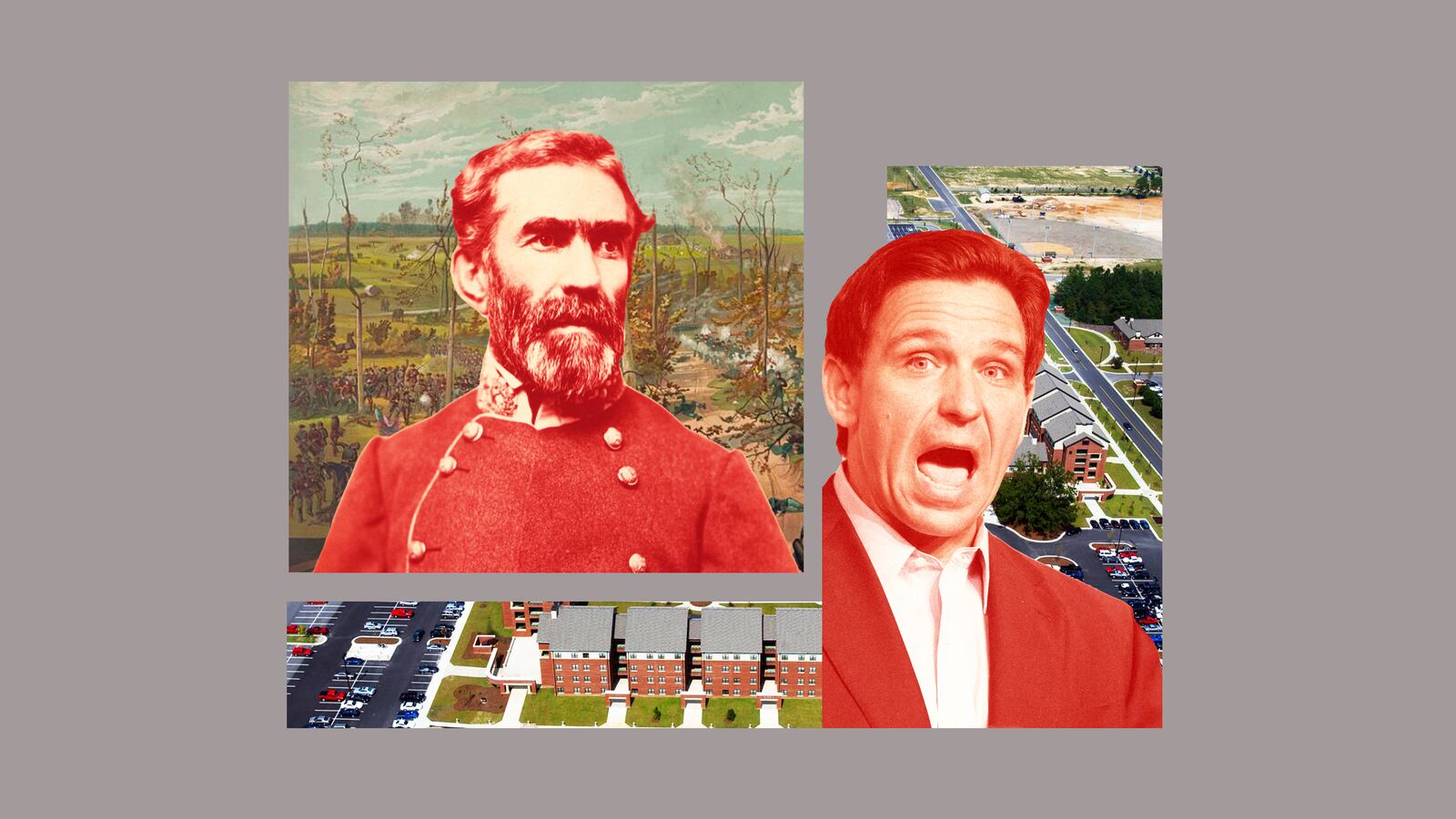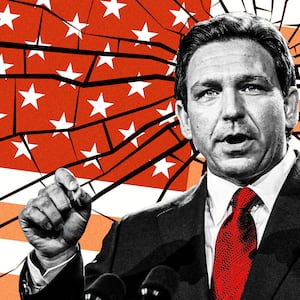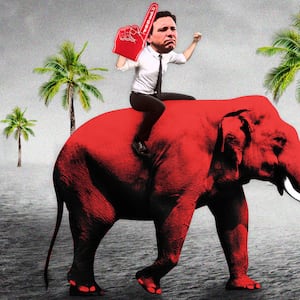As an American with strong conservative inclinations, I value tradition. And I have a decent track record of speaking out publicly against efforts to tear down our historical markers and rewrite our history.
But not everything from the past deserves to be honored or preserved, which is why some prominent Republicans are making a big, if predictable, mistake by raising a stink over Fort Bragg’s recently changed name (it is now called Fort Liberty).
“I… look forward to, as president, restoring the name of Fort Bragg to our great military base in Fayetteville, North Carolina,” Florida Gov. Ron DeSantis declared during a speech in Greensboro, North Carolina, last Friday. “It’s an iconic name and iconic base, and we’re not gonna let political correctness run amok.” (Benedict Arnold had an iconic name, too. That doesn’t mean we should name a military base after him, just to “own the libs.”)
In the spirit of National Lampoon’s Animal House, DeSantis’ central argument seems to be that Fort Bragg had “a long-standing tradition of existence…” But he isn’t alone. Former Vice President Mike Pence echoed DeSantis’ sentiments, telling the audience that if he wins, “North Carolina will once again be home to Fort Bragg.”
These may be empty words—DeSantis and Pence aren’t above pandering. Still, it’s important to understand why this message might have broad appeal.
There is a growing sense among many that today’s military is too “woke.” But while that is likely an overblown assertion, nostalgia for Fort Bragg probably has more to do with the palpable sense of loss that, amid decades of rapid technological and cultural change, afflicts millions of Americans.
At least part of the reason a politician like Donald Trump enjoys so much loyalty is because there are so many deracinated and atomized Americans who are in no mood to sacrifice any more familiarity, even if the thing to which they are clinging does not deserve their sentimentality.
In some cases, this viewpoint borders on paranoia. In other cases, they may have a point. Consider efforts to remove not just confederate statues, but also statues of great American leaders like Abraham Lincoln and Theodore Roosevelt.
To be sure, the U.S. military going through proper channels to rename a military base they run is dramatically different than a mob of vigilantes tearing down a statue (or even using political power to pressure or agitate for its removal).
Another reason many Americans might support fighting to keep the Fort Bragg name is that they see a coherent strategy behind the fight.
The assumption is that if you give the left an inch, they’ll take a mile. This is to say that Fort Bragg may be a bulwark against some future incursion. This is the culture war version of the “We will fight them over there so we do not have to face them over here” strategy.
First they came for Fort Bragg… then they came for Ronald Reagan Washington National Airport.
The problem with defending against every encroachment on distant fringe outposts is that you end up defending the indefensible. To culture warriors, you may look like a “fighter,” but to average Americans, you look like an out-of-touch weirdo—which is where Ron DeSantis and Mike Pence, if they’re not careful, may find themselves.
Perhaps it would be prudent to simply ask whether Fort Bragg’s name warrants our tears?
Fort Bragg was named after Braxton Bragg, a Confederate general who—aside from being a “rebel” (or, in the eyes of the U.S. government, a traitor)—is generally considered a poor military commander who also refused to surrender with Gen. Robert E. Lee.
But Bragg’s dubious qualifications are beside the point. Americans who couldn’t tell you Bragg’s first name are ready to fight to the hilt to preserve his last name.
I believe there are things in this life worth fighting for, but is this the hill you want to die on?
This conflict is obviously more about symbolism than it is about substance, which makes perfect sense. Symbols are the basis of culture. But is it too much to ask for people to be more selective when it comes to drawing metaphorical lines in the sand?
To answer this question, it’s worth asking why so many military bases were named after Confederate generals in the first place.
“Some Army bases, established in the build-up and during World War I, were named for Confederate officers in an effort to court support from local populations in the South,” explains James Garamone, a reporter for the Department of Defense News. “... It was also the height of the Jim Crow Laws in the South, so there was no consideration for the feelings of African Americans who had to serve at bases named after men who fought to defend slavery.”
God didn’t hand down the name Fort Bragg from Mount Sinai. It was the product of a particular time and chosen for (let’s be honest) political and marketing purposes—not merit.
Times change. For some modern Americans, the name Fort Bragg may still evoke a sense of tradition and history. But for many others, the name (again, to the degree anyone understands it) has more to do with treason and oppression.
A nation needs a shared story, which includes a shared history and shared values, to survive and flourish. This is especially hard in a diverse and pluralistic country.
But while we must fight to preserve the legacy of noble, if flawed, founders like George Washington and Thomas Jefferson, there are also times and occasions to embrace change and reform. This would be one of those times.








